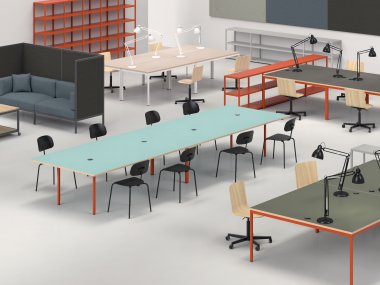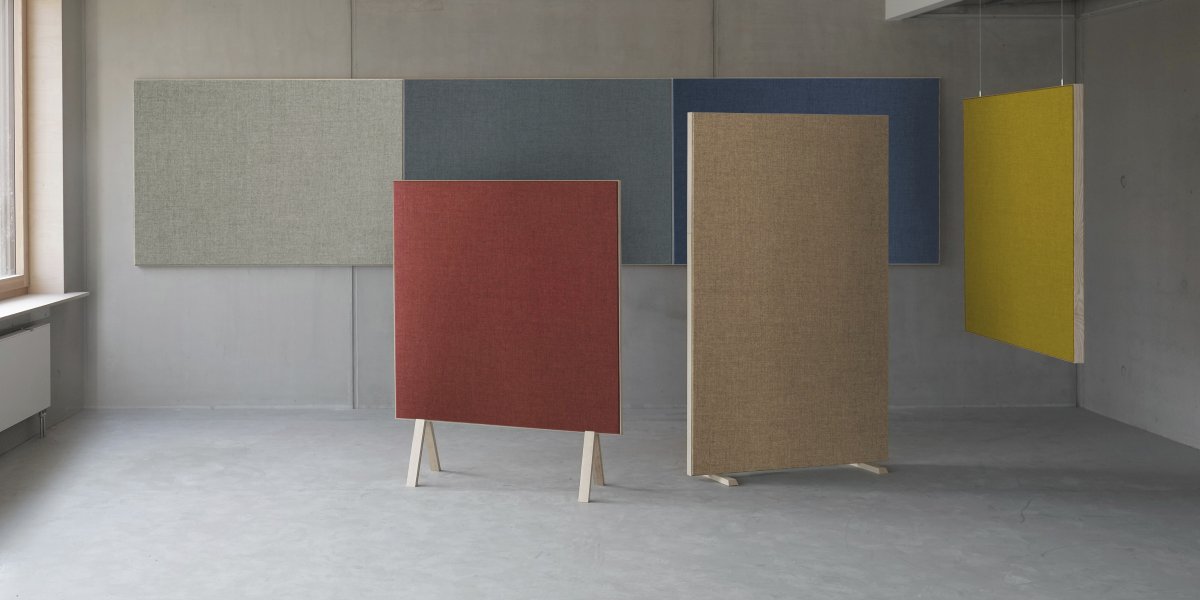
PST sound absorber
Put an end to poor room acoustics: our PST series ensures significantly reduced reverberation times, broadband absorption and better speech intelligibility. And because we use natural materials, our sound absorbers ensure a good room climate and bind airborne pollutants. PST comes as a room divider, movable wall with castors, feet or legs, and classically as a wall absorber. Thanks to the wide range of colours and possible combinations, the sound absorbers can be easily integrated into classic and modern work and living spaces.
Acoustics consulting: Plan with us
The topic of room acoustics is complex and not all details can be summarized here in a few sentences. That is why we at Modulor offer individual acoustic consulting. Our experienced team of professionals takes their time and answers all questions on the subject. Based on various information about your room and its specific requirements, we will develop a tailor-made acoustic concept. Because no two rooms are the same.
✔ We determine the acoustic requirements of your rooms and inform you about optimization possibilities.
✔ We calculate the required absorber area based on floor plans and photos and provide a cost estimate
✔ Receive a 3D model of your rooms with different variants of our sound absorbers
✔ Recommendations for the correct positioning and distribution of PST in the room
✔ Expert advice: individual, customer-oriented and without obligation
Order fabric samples now free of charge
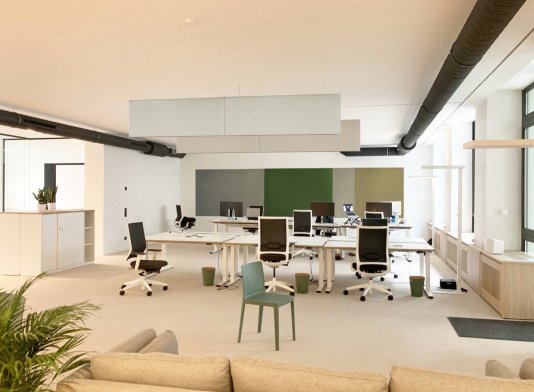
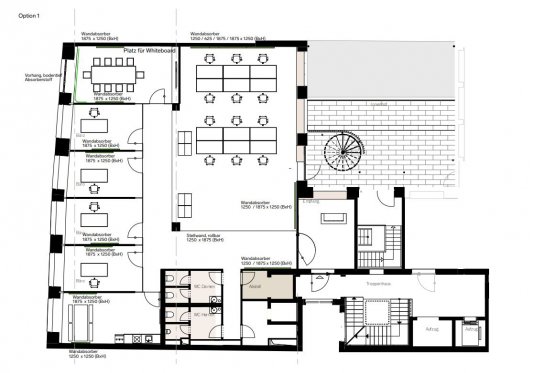
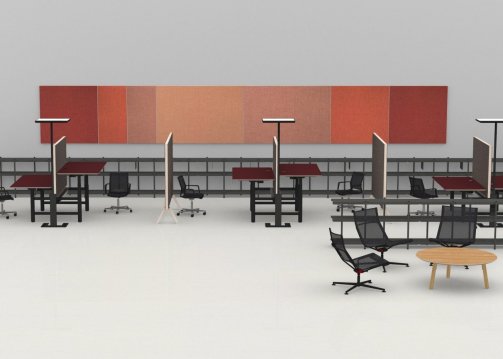
Preparation
Ideally, you already have some information about your room.
✔ Details: floor plan including length, width and deck height, condition of the walls, furniture.
✔ Room usage: how many people are in the room? What is done there - talking, talking on the phone, working at a desk?
✔ Acoustic situation: is speech intelligibility poor, noise level too high, or does the room reverberate?
Honesty is the best policy. That's why we tell you directly in a no-obligation initial consultation whether sound absorbers make sense for your specific acoustic problem or whether, in our opinion, other solutions are more suitable.
Please send us floor plans or meaningful photos of your rooms so that we can get a better picture. We currently offer an on-site consultation with analysis of your rooms for Berlin and the surrounding area as well as Hamburg.
Your contact persons
How many sound absorbers do you need?
This is not quite so easy to answer, because the use and furnishings of the rooms that are to be acoustically improved play an important role in the number of sound absorbers. Everything in a room has an impact on the reverberation times of sounds, which in turn significantly affect the acoustic well-being.
To achieve a fairly optimal reverberation time in office spaces, something like 35% of the total surface area of a room (i.e. floor, walls and ceiling) should be covered with very good absorbing materials. However, since in most cases it will hardly be possible to equip a room with 35% PST sound absorbers, they are best used in addition to existing surfaces. Carpets and rugs, bookshelves, curtains, wardrobes, upholstered furniture, ...., while having less sound absorbing properties than PST sound absorbers, contribute not insignificantly to improving the acoustics of the room and reduce the use of sound absorbers.
So it is always good to contact us for an individual consultation.
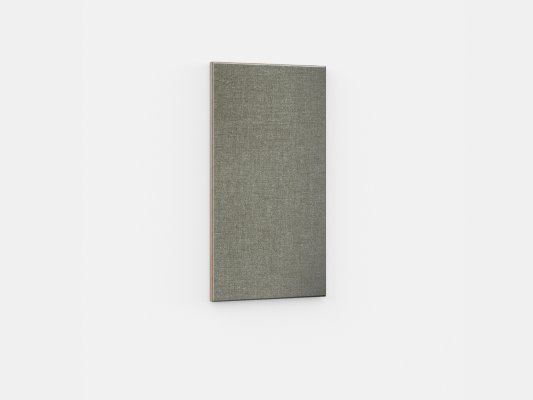
Wall absorber 395,- €
65 x 125 x 6 cm, ash natural, fabric light gray
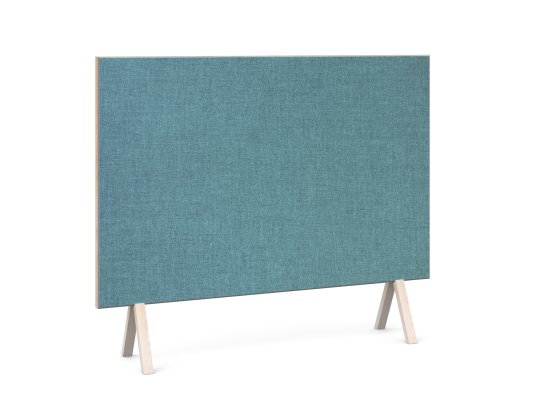
Partition wall with legs 1230,- €
187 x 125 x 6 cm, natural ash, fabric light blue
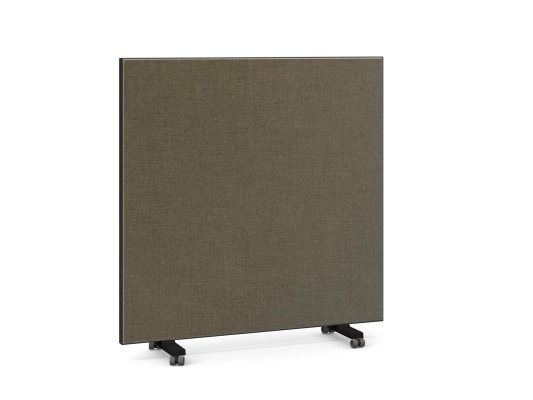
Partition wall with rollers 940,- €
125 x 125 x 6 cm, black ash, fabric gray-brown
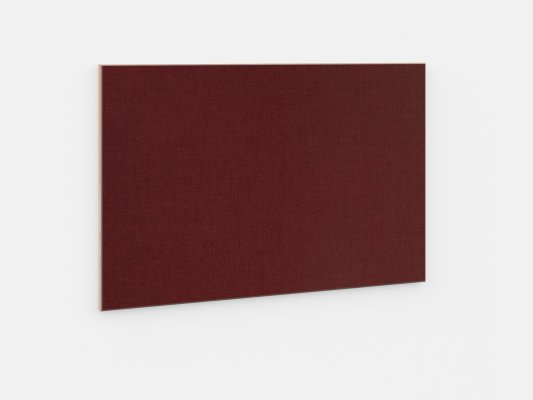
Wall absorber 795,- €
187 x 125 x 6 cm black ash, fabric carmine red
This is PST
effective and efficient
In the production of PST, the focus is on environmentally friendly manufacturing and the use of renewable raw materials. The sound absorbers are developed, tested and manufactured in Germany. All components come from Europe.
sustainable
Sheep live almost everywhere in the world and they also have to be shorn everywhere at some point. We use this valuable raw material sheep's wool in our absorbers for both the fillings and the cover fabric. We get the slats for the frames made of ash wood from our carpenter on the edge of the Ore Mountains, who buys his material FSC certified.
something for the eye
Yes, sound absorbers can also be beautiful. Thanks to the large selection of colors and shapes, PST offers the right variant for every room situation. You decide whether PST should be integrated inconspicuously or set accents.
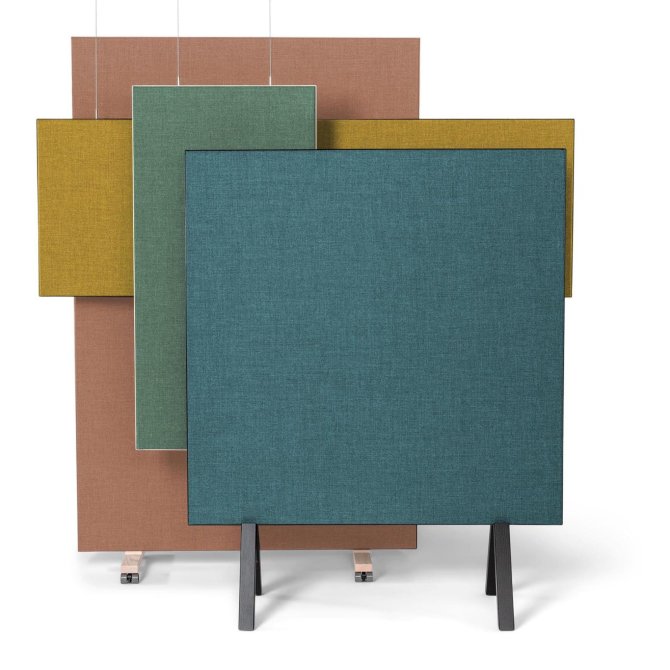
Sound absorber variants - mobile, on the wall or from the ceiling
To ensure that our sound absorbers work in a wide variety of rooms, we offer PST in 3 variants, each with 7 different sizes and formats.
Wall absorber
The space-saving variant when it comes to improving room acoustics. PST wall absorbers are attached with a wall rail and are particularly suitable when there is a lot of free ceiling or wall space.
Acoustic partition wall
With our mobile PST partition walls on feet, legs or casters, areas can be separated from each other. They are ideal as privacy screens or for creating temporary zones. At the same time, they always ensure a flexible and open working and living atmosphere.
Acoustic room dividers
Our PST room dividers - attached to the wooden frame - are suspended vertically from the ceiling. This makes them wonderfully suitable for very high rooms, a spacious loft or even a reverberant staircase.
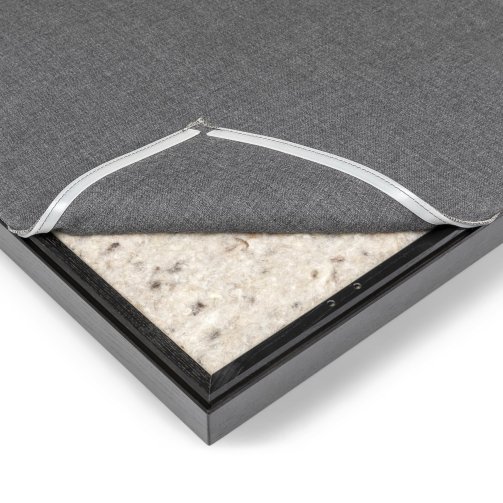
Material: We rely on wool
PST filling is made of virgin sheep's wool with supporting fiber from recycled PET bottles. The cover is an acoustic fabric made of 90% wool and 10% polyamide. The frame is made of European beaten ash.
✔ Wool has very good sound absorbing properties.
✔ Wool has the ability to purify indoor air: it absorbs pollutants from the air, as well as unpleasant odors and neutralizes them.
✔ Wool has a moisture-regulating effect. At high humidity, the filler can absorb up to 30% of its own weight in moisture. If the room air is too dry, wool releases the moisture again. Thus, PST has a positive influence on the indoor climate.
✔ Virgin sheep's wool is a renewable raw material, biodegradable, and probably currently the only sound-absorbing filler that is truly 100% integrated into the cycle.
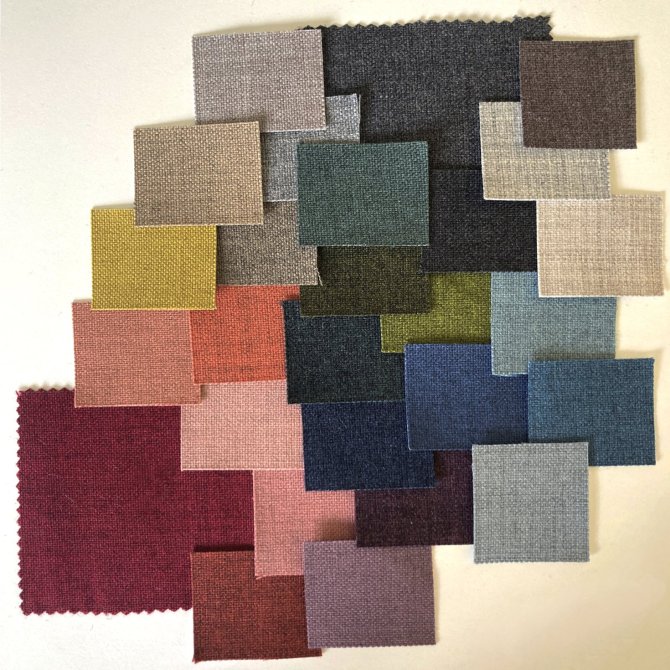
Many colors, even more combination possibilities
PST's acoustically effective upholstery fabric is currently available in 27 colors. On request, we can also make special colors possible. The fabric covering can be subsequently replaced and cleaned dry - or with lukewarm water and soap.
The wooden frame, feet and legs are made of European ash, treated with water-based polyurethane varnish, available in natural or black.
Technical terms explained in brief - what you always wanted to know about acoustics
Sound absorption refers to the process of reducing sound energy, i.e. the reduction of existing sound waves. Physically, the sound wave hits a surface and is partially "swallowed" by it, i.e. converted into thermal energy.
Sound insulation, also called soundproofing, refers to the acoustic separation of rooms. This means that sound should be prevented from penetrating from one area into another. Soundproofing measures are intended to interrupt or reduce the propagation of sound as completely as possible. Their aim is to prevent noise.
Sound attenuation is the obstruction of sound propagation by absorption of sound. In sound attenuation, the sound of the room is changed in a targeted manner, for example, reverberation is reduced. Sound attenuation measures serve to improve room acoustics.
Decibel (dB) is a unit for measuring sound intensity. The logarithmic scale of this unit is suitable for representing the entire human hearing range. For the sound pressure level in decibels (dB SPL), the lowest sound pressure that the human ear can perceive serves as the reference point. The quietest sound that humans can hear is normally 0 dB SPL (hearing limit).
In simple terms, reverberation time is a measure of how quickly sound decays in an enclosed space.
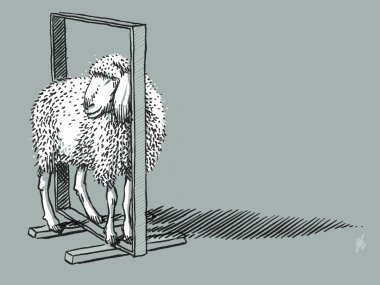
FAQ about Modulor sound absorbers
In this magazine article, we answer all questions about the new product category Acoustics. And take a look behind the scenes of the product development of our Modulor PST sound absorbers.
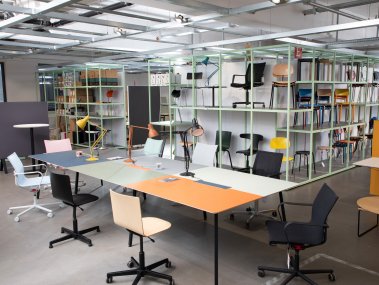
Modulor furniture experience
You can do that in our store at Moritzplatz, in the heart of Kreuzberg. See, touch, try out and at the same time be right in the middle of the Modulor action. In our showroom we offer individual and professional advice. Come by!



